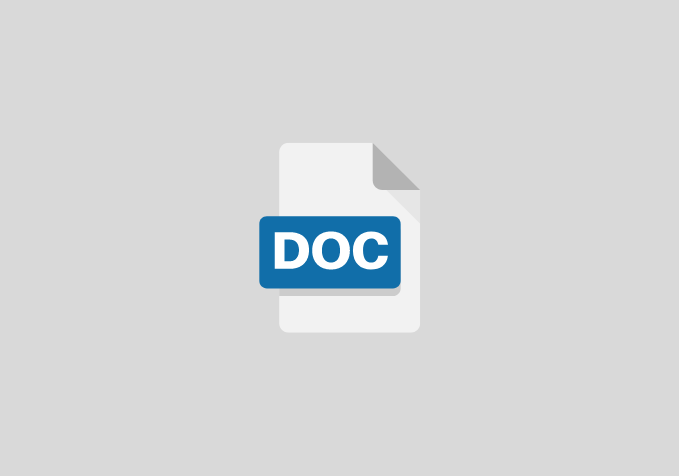A Research Proposal on Impact of Funding on the Provision and Availability of Information Resources: a Case Study of plateau State University Bokkos
Objectives of the Study
- To assess the historical trends in funding for information resources at Plateau State University, Bokkos
- To examine the correlation between funding levels and the quantity and quality of information resources at Plateau State University, Bokkos
- To identify the challenges and opportunities associated with funding in enhancing the provision of information resources at Plateau State University, Bokkos
LITERATURE REVIEW
Funding Strategies in Educational and Research Institutions
Within the context of Plateau State University, Bokkos, this study underscores the pivotal role of funding strategies in shaping the accessibility and provision of information resources (Akporhonor, 2021; Anyanwu & Akanwa, 2021). Acknowledging the diverse approaches within educational and research institutions, such as public funding, private support, and hybrid models, becomes crucial (Holt, 2021; Nnadozie, 2019). By examining historical funding trends, as highlighted in Akporhonor’s exploration of library funding in Nigeria, the research aims to provide a nuanced understanding of shifts in funding patterns over time, shedding light on evolving priorities and challenges. The study emphasizes the profound impact of funding strategies on resource provision, with adequate funding enhancing the acquisition of diverse resources and insufficient funding leading to gaps in provision, as exemplified by Holt’s examination of declining library funding (Mapulanga, 2021; Cullen et al., 2022).
For policymakers and academic administrators at Plateau State University, Bokkos, recognizing the implications of different funding models is imperative (Anyanwu & Akanwa, 2021). Policymakers can tailor initiatives to address the specific needs of the university, drawing insights from historical trends and the tangible consequences highlighted in the literature. Armed with knowledge about diverse funding strategies, academic administrators can strategically allocate resources, ensuring that funds are directed towards areas with the greatest impact on information resource availability (Nnadozie, 2019). This understanding empowers administrators to navigate challenges effectively, fostering an environment where the university can consistently meet the evolving needs of its user community, aligning with the dynamics emphasized by Holt (2021).
METHODOLOGY
Introduction
The methodology section of this study outlines the approach that will be employed to investigate the impact of funding on the provision and availability of information resources. This chapter serves as a guide to the research design, population selection, sampling techniques, data collection methods, data analysis procedures, and ethical considerations that shaped the study.
Research Design
The research design is crucial in shaping the structure of the study and guiding the collection and analysis of data. In this study, a quantitative survey research design was chosen. The survey design allows for the systematic collection of data from a large population, enabling the generalization of findings to a broader context (Saunders et al., 2019).
The justification for selecting a survey design in the Plateau State University case study is rooted in the imperative to collect comprehensive data on the perceptions and experiences of a diverse range of stakeholders. This approach allows for a systematic exploration of how funding impacts information resource provision within educational and research institutions. By opting for a survey design, the study aims to capture a broad spectrum of insights, ensuring a holistic understanding of the various perspectives held by stakeholders at Plateau State University. This methodological choice facilitates the gathering of information that contributes to a more robust analysis of the complex dynamics surrounding funding and its effects on information resource provision within the university context.
References
- Akporhonor, A. B. (2021). Library funding in Nigeria: past, present and future. The Bottom Line, 18(2), 63–70. http://doi.org/10.1108/08880450510597505
- Anderson, V., Fontinha, R., & Robson, F. (2020). Research Methods in Human Resource Management: Investigating a Business Issue (4th ed.). London: CIPD.
- Anglada, L. (2022). Are libraries sustainable in a world of free, networked, digital information? El Profesional de La Informacion, 23(6), 603–611. http://doi.org/10.3145/epi.2014.nov.07
- Anyanwu, E. U., & Akanwa, P. (2021). Funding of libraries in Nigeria: The way forward. International Information and Library Review, 33(4), 347–358. http://doi.org/10.1006/iilr.2001.0177
- Baro, E. E., & Asaba, J. O. (2020). Internet connectivity in university libraries in Nigeria: The present state. Library Hi Tech News, 27(9), 13–19. http://doi.org/10.1108/07419051011110603
- Beiske, B. (2017). Research Methods: Uses and Limitations of Questionnaires, Interviews and Case Studies. GRIN Verlag.
- Bell, E., Bryman, A., & Harley, B. (2019). Business Research Methods (5th ed.). Oxford: Oxford University Press.
- Charmaz, K. (2016). Constructing Grounded Theory: A Practical Guide through Qualitative Analysis. London: Sage Publications.
- Creswell, J. W., & Creswell, J. D. (2018). Research design: qualitative, quantitative, and mixed method approaches (5th ed.). Los Angeles: SAGE.
- Cullen, R., Adeyoyin, S., Olorunsola, R., & Idada, D. A. (2022). Issues Facing Academic Libraries in Nigeria, 30(4), 330–332.
- Easterby-Smith, M., Thorpe, R., & Jackson, P. R. (2018). Management and Business Research. London: Sage.
- Eisenhardt, K. M. (2015). Building Theories From Case Study Research. Academy Of Management Review, 14(4), 532-550.
- Goddard, W., & Melville, S. (2020). Research Methodology: An Introduction (2nd ed.). Blackwell Publishing.
- Gray, D. E. (2018). Doing Research in the Real World (Chapter 11: Designing Case Studies). London: Sage.
- Holt, G. E. (2021). Getting beyond the pain: understanding and dealing with declining library funding. The Bottom Line: Managing Library Finances, 18(4), 185–190. http://doi.org/10.1108/08880450510632271
- Kondylis, D. (2022). Greek libraries’ funding: a Greek tragedy with(out) euros and “katharsis.” The Bottom Line: Managing Library Finances, 27(2), 74–84. http://doi.org/10.1108/BL-07-2013-0021.
- Mapulanga, P. (2021). Effects of budgeting and funding on the provision of library and information services in the University of Malawi Libraries. Performance Measurement and Metrics, 12(3), 172–182. http://doi.org/10.1108/14678041111196659
- Mayega, S. (2018). Library information services in the digital age. Fourth Shanghai International Library Forum (SILF 2008), 1–8.
- McKendrick, J. (2021). Funding and Priorities: Academic Libraries the Library Resource Guide Benchmark Study on 2011 Library Spending Plans. Library Resource Guide. New Jersey: Unispere Research. Retrieved from www.dbta.com


